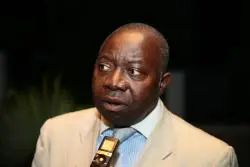The Minister of Decentralization and Local Development, Georges Elanga Obam, appointed and transferred several Secretary Generals (SGs) to various councils across Cameroon’s 10 regions on Tuesday, July 16.
In the North West and South West Regions, the appointments affected Councils in Santa, Ndop, Menji, and Wabane.
The appointment of SGs by the central government has raised questions about the commitment to effective decentralization, a process meant to empower local authorities to manage their developmental affairs independently.
Currently, while Mayors are elected by the local populace, SGs, who wield considerable administrative power, are appointed by the government.
This dynamic places significant control in the hands of central authorities, notably Senior Divisional Officers (SDOs) and Governors, who supervise local and Regional Councils.
The discrepancy in the appointment process has led to concerns about the real extent of decentralization in Cameroon.
Critics argue that true decentralization cannot occur if key administrative roles are filled by government appointees rather than locally elected officials.
Under Article 7: (1) of the decentralization law, SGs are tasked with running the administrative services of their respective councils under the authority of the chief executive.
Their responsibilities include coordinating operational activities, preparing draft budgets, executing council decisions, and organizing training for staff, among others.
The significant influence and control vested in SGs often surpass that of elected Deputy Mayors, creating a power imbalance.
In addition to their extensive administrative duties, SGs receive substantial benefits, including high salaries and allowances for housing, water, telephone, travel, and medical expenses.
This level of remuneration and authority further cements their dominant position within the local government framework.
A recent incident in the Limbe City Council highlights the potential for conflict arising from this arrangement.
After the death of Mayor Andrew Motanga Mojimba in January 2022, the SG assumed the mayoral role, a move contested by the First Deputy Mayor, Kareen Tanga.
Despite the contention, the SG’s actions were backed by a presidential decree dated September 19, 2023.
This underscored the central government’s support for their appointees, at the detriment of elected officials.
This situation depicts the tension between the ideals of decentralization and the reality of central government control.


